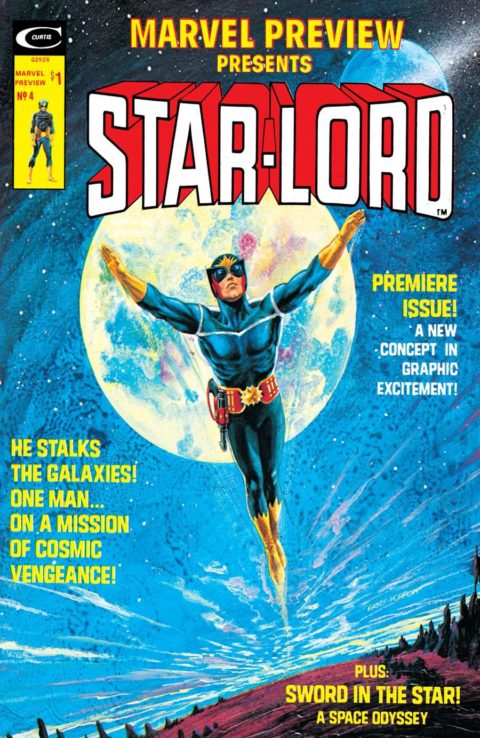
I had a good long talk with my pal, Chris Owen, about magazines recently. We could not figure out why magazines have not exploded in value as collectibles. We were talking about comic book related magazines, so we narrowed the discussion down to the publishers Eerie, Skywald, Warren and Magazine Management (Marvel’s Curtis).
Most people I know love these things but not many actually collect them seriously. We wondered why they were not collected more because Chris and I both thought these mags more than merited a stronger collector base.
The thing is you can’t escape these magazines if you are a comic book collector because they cross over so much, they are practically one and the same. Some very prominent comic book characters actually make their first appearances in magazines, Starlord in Marvel Preview #4, Rocket Raccoon in Marvel Preview #7, and Man-Thing in Savage Tales #1 are three great examples. You can’t collect Rocket Racoon or the Guardians of the Galaxy and not have a Marvel Previews #7.
Curtis is a Marvel Comics brand and it should probably be the most collected of all the publishers precisely because it ties in so much of the Marvel Universe. Not only did you have important first appearances but you also had vital issues to the canon of other major Marvel characters. Collect Punisher? Then you need a copy of Marvel Previews #2. Characters like Iron Fist and Chang Chi had very early and very important runs in Curtis mags. Conan is another thing altogether, he went from pulps in the 30s to books in the 50s and 60s to comic books beginning in 1970 then over to magazines in 1971 and 1974 with Savage Sword of Conan. Next to the collected Howard books, the best way to read Conan is the black and white mags. Magazines were not covered by the Comics Code Authority and could have much more mature subject matter, perfect for the nasty storytelling needed for a good Conan yarn.
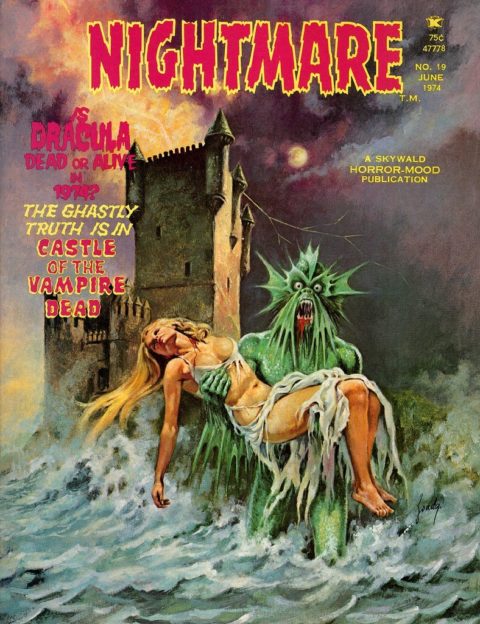
Marvel actually tried out Magazines in 1968 with its two Spectacular Spider-Man releases, I read that they were trying to compete with Warren Publishing. Warren was finding success with its Eerie and Creepy titles and added the very comic bookish Vampirella in 1968. Skywald and Eerie (the publisher, not the Warren title) I like to call the Pre-Code E.C. of mags, these things were downright nasty and had quite a following in the early 1970s. The crazy Skywald and Eerie covers are a natural add-on to any hero based magazine collection much like the Pre-Code horror comics are nice additions to superhero comic collections.
We talk a lot about how important covers are to today’s back issue comic book market, covers are driving the biggest value gains in the hobby right now and they have been for years. You owe yourself a good look at some of these early magazine covers, the quality is beyond belief. If anything will spark a surge in magazine collecting and magazine values it will be through the discovery of just how great the covers are.
CGC grades magazines and I always hated them because they never fit in my CGC comic boxes, I think this fact hampers collecting a bit but the remedy to that, of course, is to have 100 magazines in your collection and not just a Vampirella #1 and a Marvel Previews #4 that seem to always be out of place and in the way. Once a critical mass is reached and they get their own special collecting box the pet peeve of their size will go away.
Charlton had some great 70s mags that I really love collecting, Six Million Dollar Man and Emergency!
Can you see yourself collecting magazines? Do they belong in comic book collections? What is stopping them from catching on in a bigger way?

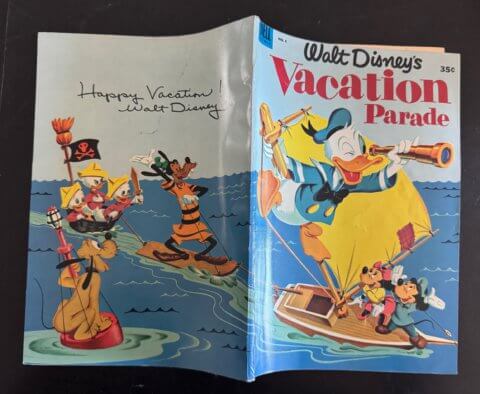
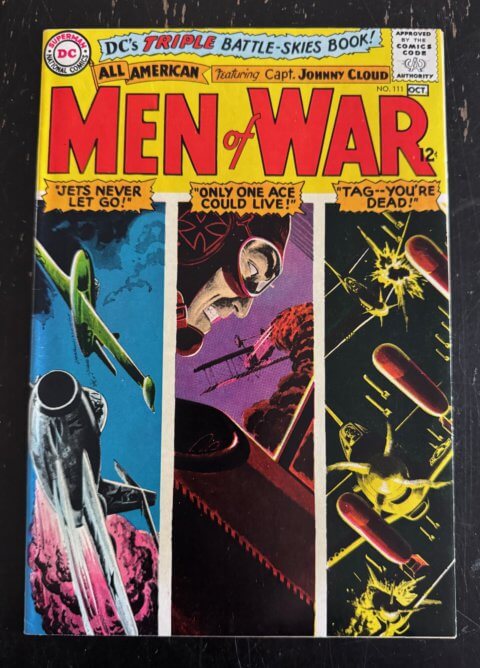
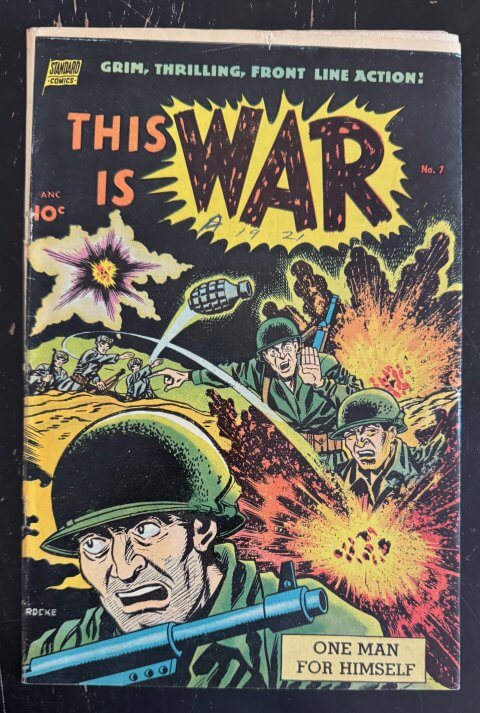
Could more of the magazines have survived, making supply outstrip demand? Because older fans bought them, they were more likely to be saved and in better shape? The first two Savage Tales have been plentiful for many years…perhaps there was a distributor stash. And didn’t Warren market his back issues? I bet he way overprinted, keeping the supply up. The Warren magazines have been plentiful for years.
You didn’t mention EC’s Picto Fiction titles…even these languished in value up until just a few years ago, when they finally moved into the $150 and up category. Some of my favorite EC material. Even though you get no color, the muddy printing on many of the EC comics make these magazines a breath of fresh air. And the larger size enhances the art.
One trend I have noticed lately…newly printed facsimile editions are are catching on, for both comics (see DC’ Silver Age offerings) and magazines. Vampirella #1-3 have been done by Dynamite. Star Trek The Motion Picture. PS Artbooks just reprinted the scarce 1959 Weird Mysteries and Eerie Tales b&w magazibes. And for me, these replica magazines are selling very well.
One issue, back to why these are not more collected, might be short runs, odd titles…nothing to tie them into anything else.
For example, Eerie (this 1959 title) and Weird Mysteries, are a bridge between EC and Warren’s titles. But they are nearly unknown. Just lost one-shots. Curiously, most of the stories in these are by Carl Wessler…who worked at EC. And several EC artists even contributed. Although I’d had the Eerie for years, somehow the Strange Mysteries was even below my wide-ranging radar…
But these are anthology titles, no super heroes or Conan to tie in other titles one might collect. And many of the other magazines you mention, not considering the few key first appearances, are the same. And anthology titles, comics OR magazine format, with a few exceptions like EC and House of Mystery/House of Secrets in the Silver Age, have rarely been too popular. Look at Tales of the Unexpected. Even the pre-hero Marvel monster titles were very cheap, aside from a few proto-type issues, until recently. Ditto for many Atlas anthology titles…until recently, they were also quite cheap.
Walt! We were supposed to corner the market on magazines before you published anything about it. lol Now everyone knows our secret! Seriously, I still don’t know why these books aren’t more popular than they are. Even the first appearance books aren’t really that expensive considering the material. Sure high grades are bigger money but anything lower than an 8 is dirt cheap.
I can understand when mags like Famous Monsters of Filmland don’t sell for big money. They aren’t comics even though the Basil Golgos covers are fantastic. But books like Vampirella, Creepy Eerie, or even the Crime Does Not Pay magazine from the late ’60s are still relatively inexpensive and have amazing covers. I think with the market heading towards this notion of collecting based on covers and first appearance, magazines are set to become the next hit.
What about the Mens Adventure Magazines? Amazing covers there too!
I have a couple of the Marvel mags…Planet of the Apes 1 and Spectacular Spiderman 1! I also have Kirby’s In the Days of the Mob! The bulk if my magazines however are either mens adventure magazines ( yes Chris O. awesome covers) and vintage mens magazines ( like Spicy from the 30’s)! The Spicy mags are pretty tame by today’s standards but were considered quite provocative in their time! I always thought of those mens mags as extensions of my pulp collection! Pricing is all over the board on these issues as there is no current pricing guide! Bookery’s was a guide but hasn’t been updated in at least 15 years!
Walt, I always wondered why magazines never showed up on your undervalued spotlight column. I collect these for several reasons. For us older collectors, the large print and art is ideal. Also I enjoy the art in black and white, I don’t know why, but it seems to give the horror comics an added feel to it. These magazines are difficult to find in higher grades >9.0. They are fun to track down and collect. More on magazines please !
Magazines, paperbacks, digests and treasuries; they’re all in the same boat.
They’re great, I have some of each group, but they never seemed to catch on in a big way. Not sure why. I’ve always liked them, especially when they feature more adult themes, going beyond comic book limits: although that’s hard to do with all the suggestive stuff in comics nowadays.
It could also be cost. Those items were always pricier than the comics. Not many kids have deep pockets when it comes to buying them.
Bud, you’re right about the anthology angle but I still say the fact that there is an important – say – Punisher story should matter more.
Hey Chris, I already bought a huge trailer of mags, I guess I should offer you half though the price just went up…
Gerald, Overstreet always did a good job including the Curtis Marvel mags in their Guide.
Good point on the price Klaus, they were pricey when I was a kid, way easier to grab that 25 cent comic and going back to Bud’s comment I remember spending money on the things I already collected like the comic titles I liked.
And Ed, yes I plan to visit mags more often, I think they will be trending positively.
I can remember at more the one convenience store where they forbade anyone who didn’t look older to even buy any of the mags! It wasn’t until I found a shop that sold back issue comic, books, and magazines that I was able to read any if them!
Gerald, the old Bookery Guide to Pulps was just recently updated! Unabashed plug, I have 30 copies coming in any day now. They’ve really kept a low profile on the new edition, I only found put from a pulp dealer, Dave Smith, and I handled the last edition for several years!
Sounds like most of us here on this blog DO collect this material across the spectrum of formats. But we’re probably more dedicated and longer-term collectors than the average.
When you mention paperbacks though, then I have to bring up supply v. demand again. With just a few exceptions, there are a LOT more vintage (1940-1965, let’s say) paperbacks put there than there are collectors to buy them. So many titles, you can go online and find lots of listings. Exceptions there will always be, including ones in very, very top grade. But the entire world of paperback collecting (I know it all too well, and I greatly enjoy them) is SMALL.
Take LA Vintage Paperback Show, for example. Its just once a year, the only show I know of outside NY, if there even is one there these days. Just that fact says a lot. Compare that to comic book shows, all over. Even this great little shows draws a pretty modest crowd, and if you take great pbs to sell—I have—there’s very muted interest and LOTS to select from amongst the many dealers there. It is far more a buyer’s market than a seller’s. Coal to Newcastle.
I also take wonderful vintage pbs many antiquarian book shows each year. I always sell just a handful, typically a few Dell Mapbacks, maybe a few Popular Library titles with great covers. Philip K. Dick is the one few authors guaranteed to see interest. I could bring lots more—but its not worth the space for $5, $10, $15 books when typical older books go for much more. Those prices alone prove how shallow the market is, its hard to sell even premium titles for more than $25 or $30. And as a collector, there’s very few I would pay more than that for, just a few rarities. Plentiful supply and low demand keeps prices low.
Does this translate to magazines? I can’t say, not being more in touch with that market…But how about Playboy magazine these days. You can’t get anything for them unless they are from before 1960 or ‘65. They’re the new National Geographic! Common and no demand. Digest-size Science Fiction magazines like Galaxy and F&SF almost falls into the same category…a few you might get a couple bucks for. Much of the art and much of the best stories have been collected more economically elsewhere.
I had a large number of the Doc Savage paperbacks… read them all at least twice! Sold the a few years back at $2 each. Maybe I could have gotten more but they went fast in lots and made over $200. Someone else can enjoy them now!
Read the comments and you have your answer. All of the things that get us to lust for comics are missing in these magazines:
– Many/most collectors remember comics from when they were wee lads. Wee lads weren’t allowed near the magazines. The lack of that early association is clearly a downer.
– When you were allowed to get to them, the b/w was a big downer. I remember thinking how cool all that blood would have been if it didn’t have to be depicted as black – it looked like oil.
– By and large no continuity. Sure you had Conan, but most of the continuity there is just Conan. Batman collectors today talk about Hugo Strange – can anybody think of one memorable character from the magazines? (Okay Starlord. But you know what I’m saying.)
– EC without the EC panache. I don’t even know when I even saw my first EC, but for years before we knew about these and talked about them with a kind of reverence. Dismemberment, ghouls, monsters. These weak b/w knockoffs were fun every now and then, but couldn’t hold a candle to the original. (I feel that way about a lot of the PCH comics as well, but at least as collectibles these have scarcity and the “PC” factor going for them.)
– As Bud says, older readers = better and more saved copies. So you have a not very attractive item with not much scarcity.
The only magazines that I bought regularly were those with comic tie-ins: Conan and Rampaging Hulk. I agree with Walt that the Conan mags were great for getting the “real” Howard stories, but in neither case did I feel like these were the “real deal” like I did with the comics, which I bagged and saved.
I have bought only one graded magazine, Don Rosa’s copy of Hell Rider #1, on the argument that The Butterfly is the first African-American female superhero (true?). Otherwise I am mainly on board with the Marvel first appearances that Walt mentions, but precisely because they tie in with the Marvel continuity.
Like a lot of comics and related, I’m not going to argue that other magazines will never be worth more, but from an investment standpoint I think there will always be some comic(s) that will outpace them. I would say buy decent cheap copies just because you like them, not with any appreciation in mind.
Ok… my last comments for the day: I agree with Chris that the early magazines don’t have the nostalgia factor because we didn’t have them in our grubby little hands…well maybe Chris saw his hands bigger. However, I think the break came with the Treasury Editions that HAD to be put with the mags because they were so darned big! At least thats my recollection! Bud…I will be looking for that Bookery’s guide when you have it! I got the first 2 volumes of The Heart of Juliet Jones from you before the covid-19 hit and they were a super bargain!
Bud: With Playboy, you need to sell them for features other than unclad women.
For example, the February 1965 edition feaured an jn-depth interview with the Beatles, a deceptive issue as it only had a tiny blurb on the cover. It’s very much in-demand by Beatles collectors.
Two related issues were in early 1981, after Lennon’s death. One issue featured a full interview with John and Yoko several days before his death, updating the world on their decade after the breakup of the group.
The other issue featured John reviewing every Beatle song, noting who wrote what and what each song was about. A definitive review by an official Beatle, and some of the song meanings really throw until you realize that it was true.
There are many other Playboys with famous celebrities that are interesting to collectors of those who follow those celebrities and will produce a reasonable return for certain issues. Hef prided himself with his interviews with hard-to-interview celebrities, who didn’t give many back in those days.
Gerald: The problem I had with Treasurys was that the merchants would bend and fold them to fit magazine racks (and somtimes into comic racks – ouch), so finding those cardboard covers in half decent shape was a challenge at best. As a result, reselling them with severe cardboard cracks, splits, fingerprint indentions etc, made getting any sort of value for them almost impossible.
The same thing happened with the cardboard covers on paperbacks. Once opened, the cardboard was permanently bent and damaged, not to mention the spine crscks from the opening of the books. At least, most comics have pliable covers and interior pages which ‘give’ somewhat, minimizing the damage.
Chris Meli: That same black and white that turned us off as kids, now find a new appreciation as adults, when we realize that the black and white gives a dramatic depth to the storytelling.
Klaus with his 2 cents (:
In the mid ’70s I ordered Creepy #1 – 20 (with a few multiples of #1) from the back of a Warren mag for pretty cheap. I still have them and they are filled with great stories and art! They were unread from the warehouse and looked perfect to me when they arrived, but by modern day grading standards they probably ranged from 8.0 – 9.0 from careless storage and packing.
David H. The early issues have those killer Frazetta covers !!!